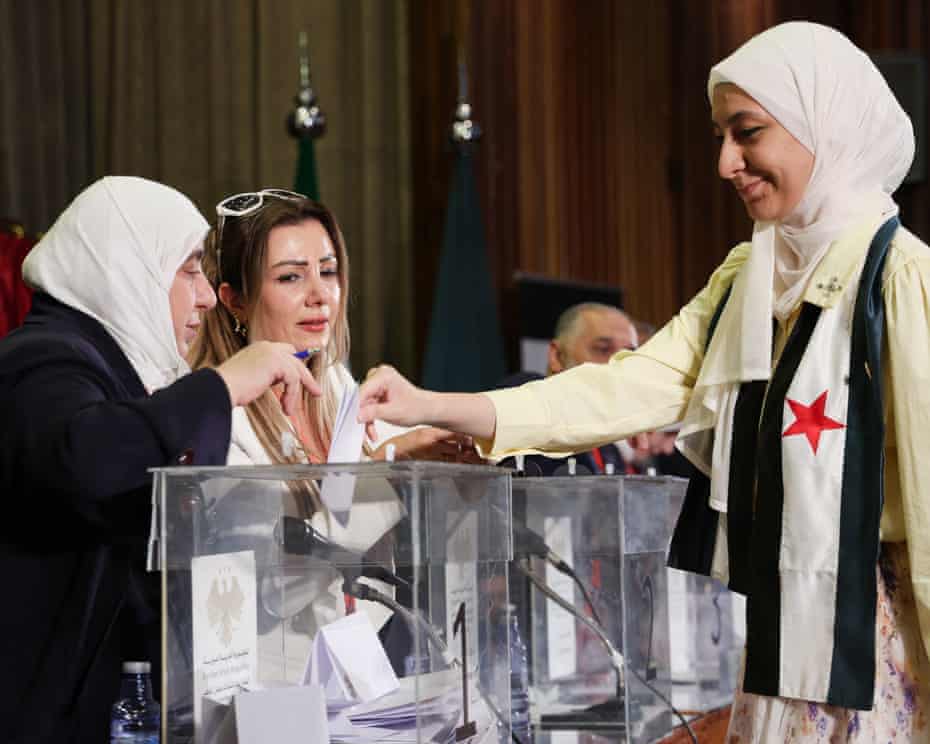Syria has commenced its first parliamentary elections since the ousting of longtime ruler Bashar al-Assad, marking a tentative step towards democratic governance amid criticism that the process favours the country’s interim leadership.
As the nation emerges from over a decade of civil war, local committees have begun selecting members of a transitional parliament. The newly formed 210-member People’s Assembly will be responsible for drafting a new constitution and electoral law. It will serve a renewable 30-month term in preparation for future national polls.
Under the current framework, one-third of the assembly seats are to be appointed directly by interim leader Ahmed al-Sharaa, a move widely viewed as consolidating his authority. The remaining two-thirds are being filled via province-based electoral colleges, with seat allocation determined by population. No direct popular vote has been held, with officials citing widespread displacement and loss of documentation during the war as barriers to such a process.
Speaking at the National Library in Damascus, Sharaa stated: “There are many pending laws that need to be voted on so that we move forward with the process of building and prosperity. Building Syria is a collective mission, and all Syrians must contribute to it.”
Read Also: Syria returns to UN stage after six decades
The interim government dissolved the previous legislature upon assuming power. According to the organising committee, over 1,500 candidates are contesting seats in the new assembly, though only 14 per cent are women. Eligibility criteria exclude individuals who supported the former regime or advocate for secession or partition.
Among the candidates is Syrian-American Henry Hamra, the first Jewish contender for parliamentary office since the 1940s.
Elections have been postponed indefinitely in Sweida province, which has a Druze majority, and in territories controlled by the Kurdish-led Syrian Democratic Forces, due to ongoing tensions with Damascus.
Critics have raised concerns that the electoral college system may favour well-connected individuals and marginalise certain ethnic and religious groups. Nonetheless, some citizens view the elections as a step forward.
Lina Daaboul, a doctor in Damascus, initially declined to participate in the electoral college, citing concerns over the legacy of previous assemblies. However, upon learning her role would be limited to voting, she reconsidered, describing it as “a national duty”. On election day, she remarked: “This is the first time I’ve ever voted in my life. I’m happy, and I don’t mind standing in line for a long time.”
Lara Eezouki, a member of the national elections committee, stated that the new assembly represents all sects and communities, adding: “It is the first time in Syria’s history that the ballot box truly rules when the results are not prearranged.”
Ibrahim Halabi, a former soldier who defected during the 2011 uprising, said: “This is the first time in our lives we’ve participated in a democratic electoral process without outside pressure.”
Sharaa’s Islamist coalition seized control of Damascus in December, bringing an end to Assad’s rule.



